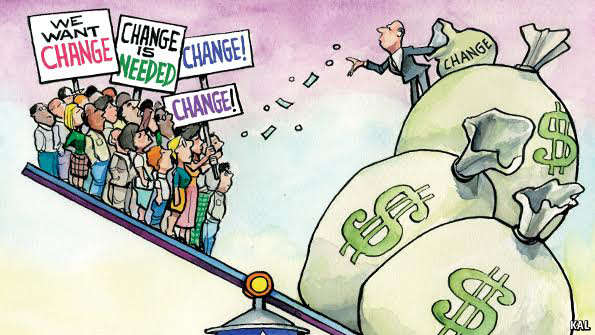Recent Young Adult Blog Posts
Meet our 2019 General Assembly Spark Leaders!
At this summer’s General Assembly, UUCSJ is excited to offer our third annual stipended leadership opportunity to alumni of our programs and related justice and leadership initiatives to support their engagement in social justice education, action, and outreach at GA....
The Great Divide
The wealth of this nation is created by all of us together. We will rise or fall as a community. Together, we can build an economy that rewards and cares for all of us.
— Deepak Bhargava
In light of the housing market crisis and subsequent economic crash of 2008, the deep structures of economic inequality and injustice embedded in our society have become glaringly obvious to much of the world. Recently, the presidential campaign of Bernie Sanders has brought to light an intersectional space across communities and organizations to confront these issues in a way not seen in the United States for decades.
 Today in the U.S., we’re witnessing a surge of social and political pressures around economic justice, from the Fight for $15 to battles for affordable healthcare, to challenging unjust college loan burdens, to struggles for affordable childcare and housing, among many others. Not to mention the intersection of economic issues with racial justice, gender justice, immigration, environmental justice, and disability rights.
Today in the U.S., we’re witnessing a surge of social and political pressures around economic justice, from the Fight for $15 to battles for affordable healthcare, to challenging unjust college loan burdens, to struggles for affordable childcare and housing, among many others. Not to mention the intersection of economic issues with racial justice, gender justice, immigration, environmental justice, and disability rights.
One glaring fact on global wealth inequality says a lot: In 2017, they [Oxfam] calculated that inequality had become so bad that the richest 8 people had more wealth than the poorest half of the human population, or 3.6 billion. That’s the number of people it takes to fill single limousine (The Rules, An Update to the Rules’ 2013 Global Inequality Video June 2017).
How are we to make sense of such blatant injustices and all of these struggles to counter them? How do we understand the growing divide between the rich and poor, both domestically and globally? How do those of us with some level of access to economic privilege step forward – with wisdom, respect and the willingness to learn – into the lives of people who often don’t have access to life’s basic necessities?
One first step forward is having the willingness to learn about large economic structures and systems which are largely invisible, and then dedicating oneself to a lifelong education on how class differences and inequality manifest even among activists and social justice advocates.
This unit is designed to introduce you to thinking about economic injustice, primarily within the U.S. as it relates to wealth inequality, their structural causes, how they manifest, and how you might find your role in helping to dismantle them.
WATCH: Videos on Inequality, Classism, and Privilege
Check out this 10 minute video for a crash course in Income and Wealth Inequality: [Trigger Warning: Graphic images 7:47-7:53]
In the video below (10:57), Another Glass of Champagne, please?, Mike Muse shares his personal story of classism and privilege.
ACT: Quiz - What's Your Class Path?
Inspired by the book Missing Class by Betsy Leondar-Wright, PhD, Class Action Boston created the Activist Class Cultures Kit to raise awareness of class among activists.
Take the quiz, What’s Your Class Path? to give a name to your class path: http://www.activistclasscultures.org/whats-your-class-path
REFLECT: Class and Economic Justice
- What did you think of the quiz?
- Has your class changed since you were younger? For those of you living away from your parents or guardians, do you believe you’ve moved to a different class?
- Do you know people in your life who are in a class very different from your own? If so, what have you noticed in the differences in the way they live? What privileges or disadvantages do you think you have had based on your class background?
- As you envision making a continued commitment to social justice work, what questions does this raise for you about your economic privilege and/or security, or lack thereof?
- What do you think are some structural causes of such blatant inequality?
- Are you aware of how wealth inequality plays out among different populations, i.e., by race, gender, age, among American Indians?
- Is economic justice something your internship organization is addressing? If so, how? Do people of different class backgrounds engage or work together within the organization or community? If so, what does that look like?
SHARE
CLOSING POEM: Labyrinth
Walk the maze
within your heart: guide your steps into its questioning curves.
This labyrinth is a puzzle leading you deeper into your own
truths.
Listen in the twists and turns.
Listen in the openness within all searching.
Listen: a wisdom within you calls to a wisdom beyond you and
in that dialogue lies peace.
— Leslie Takahashi Morris
ADDITIONAL RESOURCES
What is Neoliberalism? – A writer at DailyKos explains what neoliberalism is, how it came to dominate as an economic ideology, and why it is so important to know how it works.
Wealth inequality has widened along racial, ethnic lines since end of Great Recession – A quick read on how the wealth inequality gap has grown over the years.
NY Times Op-Ed: Stop Pretending You’re Not Rich
The two books which have become classic introductions among activist communities to gain a better understanding of our contemporary global economic structures are:
- David Harvey – A Brief History of Neoliberalism
- Naomi Klein – The Shock Doctrine

